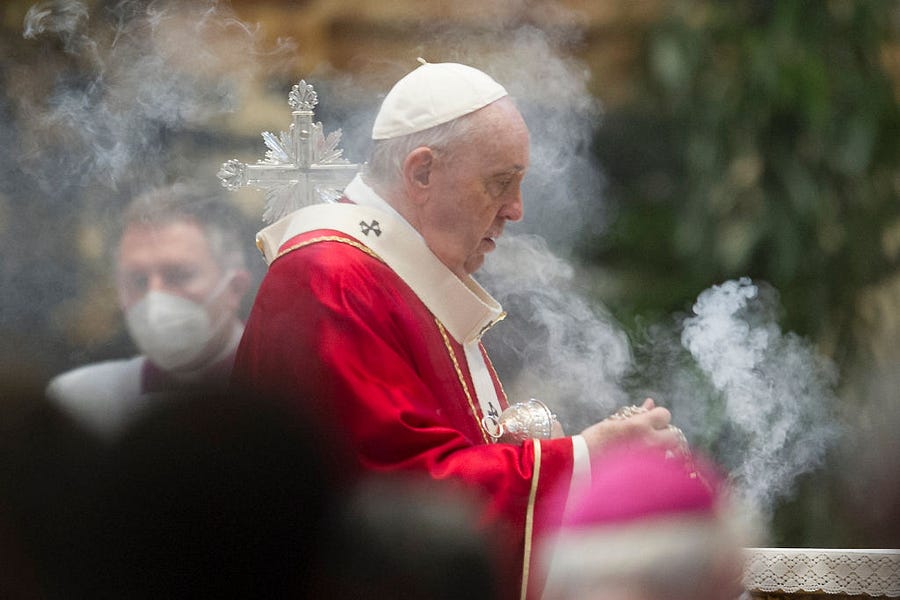A viral video claiming an international court had issued a warrant for Pope Francis’ arrest began spreading on Facebook over the weekend, with further videos, websites, and social media posts repeating that the International Common Law Court of Justice—based in Brussels, New York, and Vancouver—issued a warrant for the arrest of Pope Francis for “crimes against humanity,” charging the pope with, among other things, child abuse, ritual murder, and mass murder.
This claim is almost comically false.
The pope is a popular target of QAnon conspiracy theories that claim he is a part of a cabal of elites that preys on children—this isn’t even the first time a claim that there is a warrant out for his arrest has had to be debunked. This time around, the conspiracy theorists relied on blatant (and shoddy) fabrication. Issue No. 1: There is no such thing as the International Common Law Court of Justice, as even a simple Google search reveals. There is an International Court of Justice based in The Hague (not Brussels, New York, and Vancouver, as is claimed in the video). The International Court of Justice has not issued a warrant for Pope Francis’ arrest—and if it had, it’s unlikely that the first place you heard about it would be from some random guy on YouTube.
The “warrant” cited in the video can be found on the website MurderbyDecree.com, and encourages those interested in learning more to email itccsoffice@protonmail.com and angelfire101@protonmail.com, email addresses that, given they are not attached to an organization but ProtonMail, should speak for themselves in the question of validity. It also contains a clip-art logo for the “International Common Law Court of Justice” and mentions a secretary to the court, Dominique Redvers-Dufort, who returns zero search results on Google.
All of this is to say, the pope is not wanted by an international court, despite the profoundly silly attempt to make people believe otherwise.
If you have a claim you would like to see us fact check, please send us an email at factcheck@thedispatch.com. If you would like to suggest a correction to this piece or any other Dispatch article, please email corrections@thedispatch.com.







Please note that we at The Dispatch hold ourselves, our work, and our commenters to a higher standard than other places on the internet. We welcome comments that foster genuine debate or discussion—including comments critical of us or our work—but responses that include ad hominem attacks on fellow Dispatch members or are intended to stoke fear and anger may be moderated.
With your membership, you only have the ability to comment on The Morning Dispatch articles. Consider upgrading to join the conversation everywhere.